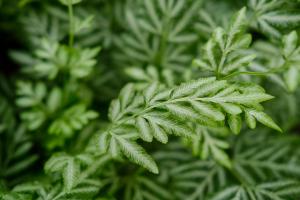How to Grow Healthy Water Plants
Water plants are a great addition to any pond or aquarium. They not only bring beauty but also help maintain water quality. However, growing water plants can be a challenging task for beginners. Here are some tips on how to grow healthy water plants.
1. Choose the Right Plants
When selecting water plants, make sure to choose ones that are suitable for your pond or aquarium. Consider the water depth, temperature, and lighting conditions. Some plants, such as water lilies, need full sun to thrive while others, such as water hyacinths, prefer shade. It is also important to choose plants that are appropriate for the size of your pond or aquarium.
2. Plant Correctly
Proper planting is crucial for the health of water plants. Planting too deep can cause the plant to drown, while planting too shallow can expose the roots to air and dry out the plant. Place the plant in the planting basket, cover the roots with soil, and add a layer of gravel to hold the soil in place. Make sure not to compact the soil too much as this can prevent water from reaching the roots.
3. Provide Adequate Lighting
Water plants need light to photosynthesize and grow. The amount of light needed varies depending on the species of plant. Generally, plants that have red, orange, or yellow leaves require more light while those with green leaves require less. Make sure to provide the right amount of light for your plants to avoid stunting growth or causing the leaves to turn yellow.
4. Maintain Water Quality
Water quality is paramount for the health of water plants. Poor water quality can lead to algae growth, which can smother and kill plants. Regularly test the water for pH, ammonia, nitrites, and nitrates. If any of these levels are off, take the necessary steps to correct them. Also, make sure to perform regular water changes to remove any excess nutrients or debris that can harm the plants.
5. Fertilize Properly
Water plants need nutrients to grow just like any other plant. However, fertilizing too much can lead to excess algae growth and harm the plants. Use slow-release fertilizer specifically designed for water plants and follow the instructions carefully. It is also a good practice to remove any dead or decaying plant matter as it can release excess nutrients into the water.
Conclusion
Growing healthy water plants can be a rewarding experience. By following these tips, you can ensure your plants thrive and contribute to the beauty and health of your pond or aquarium. Remember to choose the right plants, plant correctly, provide adequate lighting, maintain water quality, and fertilize properly. With a little bit of effort, your water plants will be healthy, vibrant, and provide enjoyment for years to come.

 how many times do yo...
how many times do yo... how many planted tre...
how many planted tre... how many pine trees ...
how many pine trees ... how many pecan trees...
how many pecan trees... how many plants comp...
how many plants comp... how many plants can ...
how many plants can ... how many plants and ...
how many plants and ... how many pepper plan...
how many pepper plan...
































